Oct 7th, 2024 – Dharma Q&A at Gilbeot
Hello. Today is the day of Venerable Pomnyun Sunim’s invited lecture at ‘Gilbeot’, a gathering of broadcasting, film, theater, and art professionals.
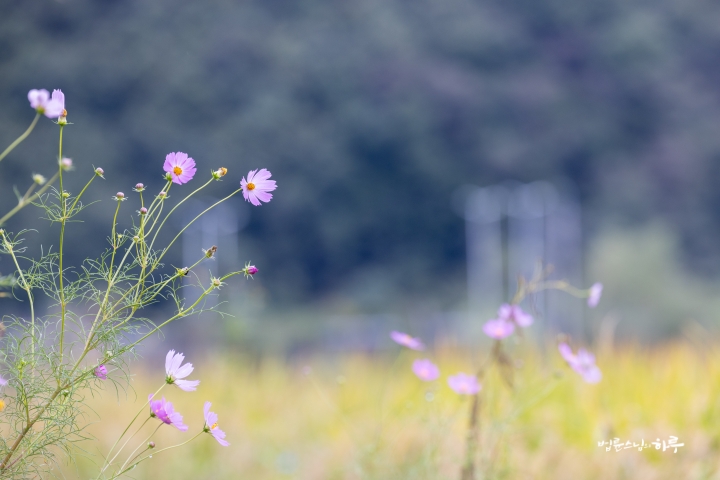
It has been raining since early morning at the Dubuk Jungto Retreat Center. After completing his morning practice and meditation, Sunim intended to do farm work, but the rain did not stop. In the morning, he attended to his work indoors.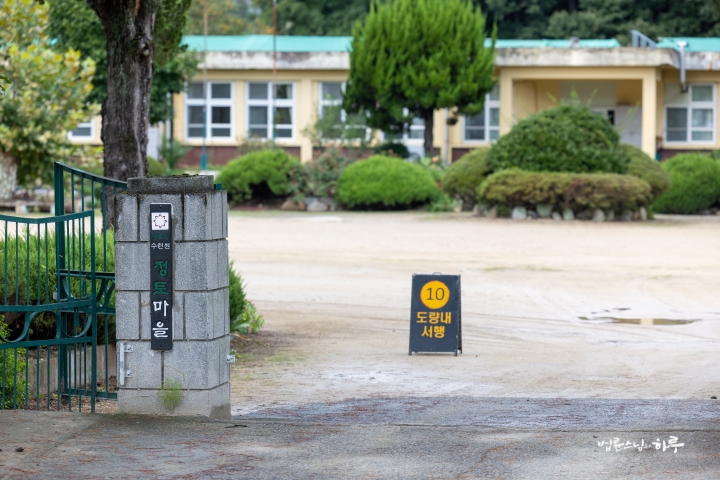
As the rain continued, Sunim headed to Seoul earlier than planned. He left the Dubuk Retreat Center at 11 AM and drove on the highway for 4 hours.
As they approached Seoul, the rain stopped. After arriving at the Seoul Jungto Center at 3 PM, Sunim had a late lunch.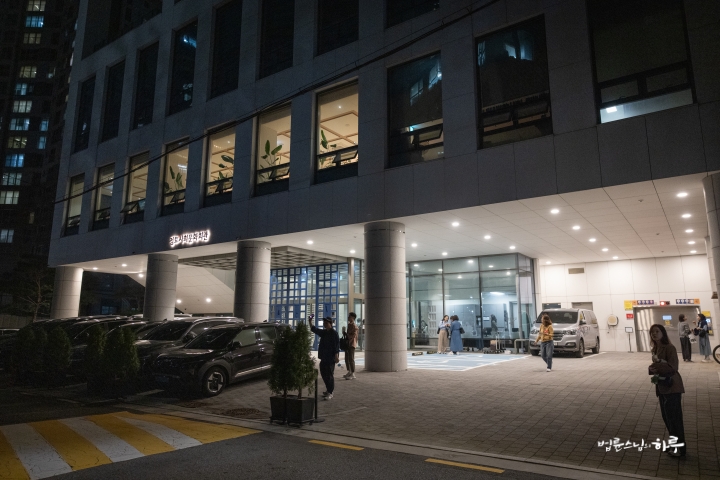
As the sun set, Sunim headed to the Jungto Social and Cultural Center at 6 PM. When he arrived at the cafe on the second floor, writer Noh Hee-kyung, the representative of Gilbeot, warmly welcomed him.
“It’s nice to see you. Have you been well?”
“I’ve been busy writing a new piece.”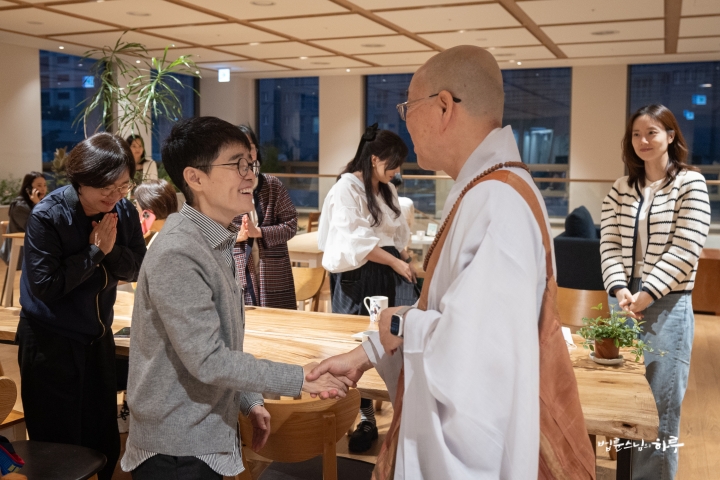
Soon after, actors began to arrive. Some actors, including veteran actress Na Moon-hee, had tea with Sunim before the lecture.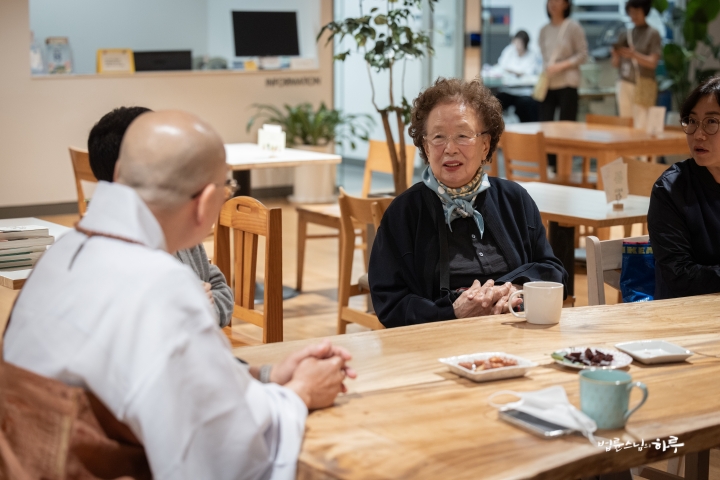
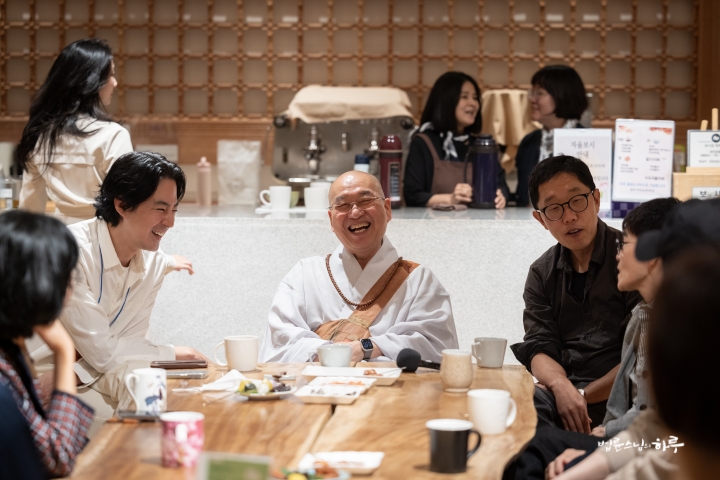
As they chatted, it was soon time to start the lecture. Sunim moved to the basement auditorium with the actors.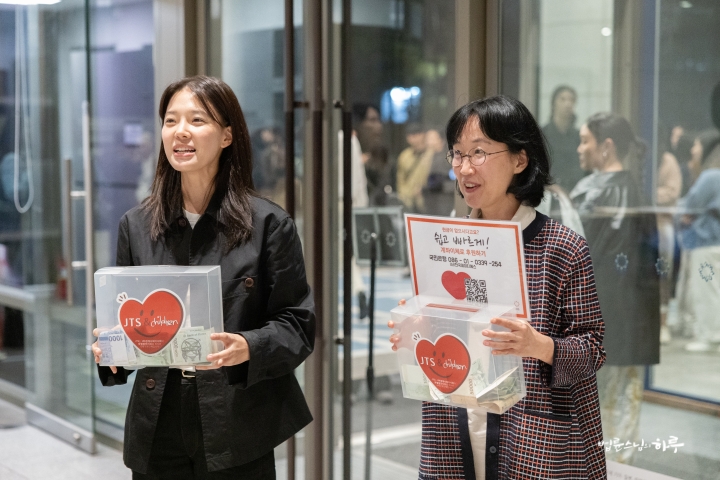
After watching a video of Sunim’s visit to the earthquake-damaged areas on the Turkey-Syria border last month and his workshop on sustainable development in Bhutan, the lecture began at 7 PM.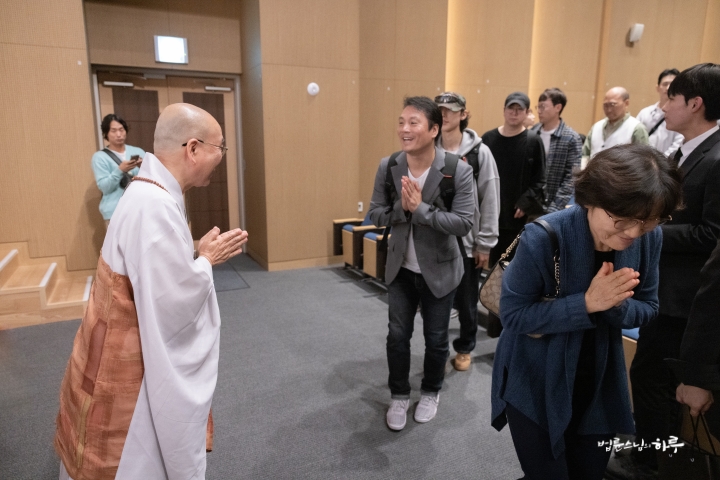
With about 320 people filling the seats, actress Choi Moon-kyung, who was hosting the event, introduced the purpose of today’s lecture.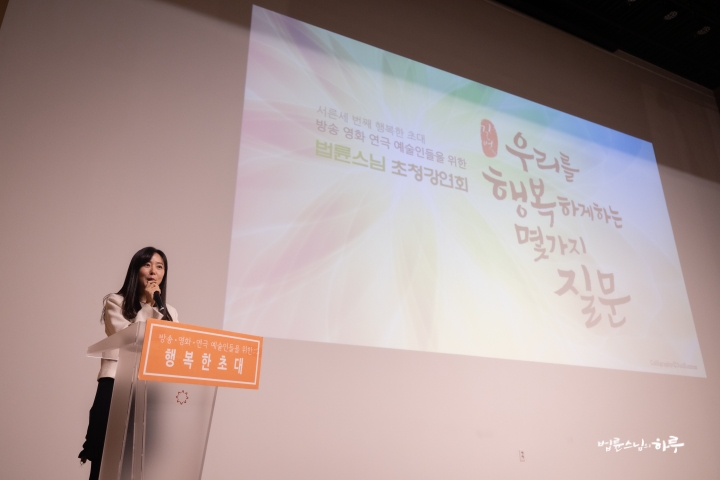
Is There a Way to Live Happily Without Worries?
“How many times a day do you worry? There are writers who worry about not being able to write, about low ratings, and about having to quit writing. There are actors who worry about messing up their performances, about not being cast while being conscious of the director’s mood, and about having to give up acting. There are staff members who worry about missing schedules, about relationships with people, and about having to quit their jobs due to stress. There’s a saying that ‘If worrying could eliminate worries, we’d have no worries.’ Is there really no way to live happily without worries? I hope we can find that path in today’s lecture by Venerable Pomnyun Sunim.”
Next, writer Noh Hee-kyung, the representative of Gilbeot, gave a greeting.
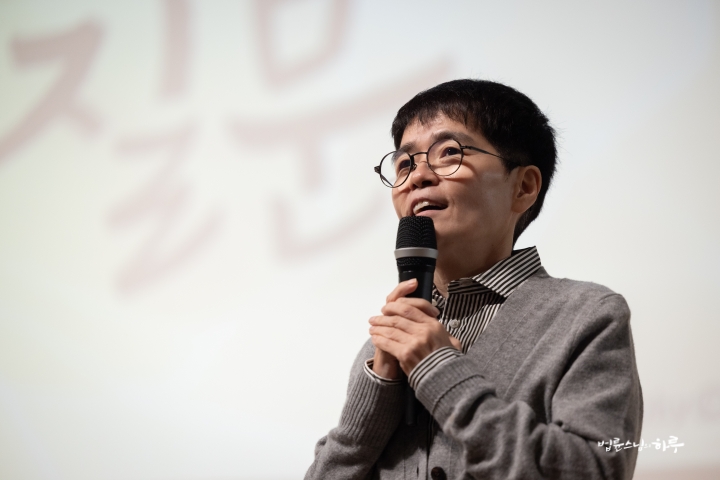
“Gilbeot is a gathering of broadcasting, film, theater, and art professionals who used to struggle and complain as if their problems were the whole world, but after encountering mind practice, they have lightened their burdens and engage in social service activities. It’s been 22 years since we started this gathering. There are times when we have mountains of worries without actually doing any work. Sometimes 24 hours a day isn’t enough just for worrying. Our lives seem to be filled with worry, anxiety, irritation, and anger. However, Venerable Pomnyun Sunim says that truth is common sense. It means that if we just return to common sense, we can live our lives wisely. Today, we’ll learn about that common sense. It’s nice to meet you all.”
Then, amid applause, Sunim took the stage. He began the conversation by sharing news about the earthquake recovery activities in the Turkey-Syria border region.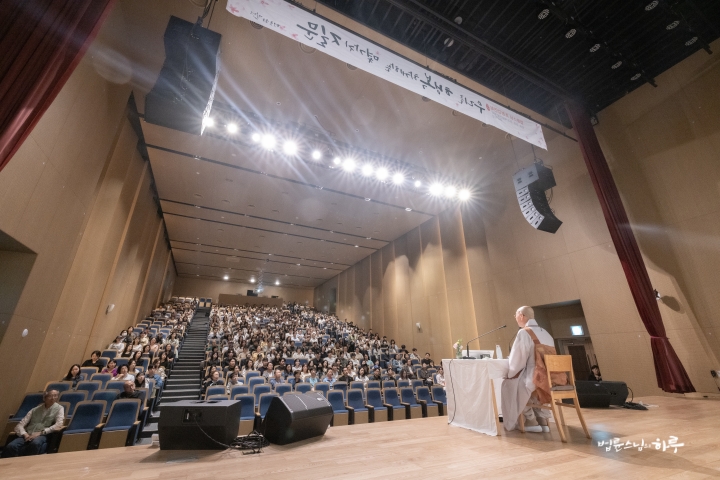
“Syria has produced ten million refugees due to 12 years of civil war. Over a million of them went to Europe, causing social unrest, and several million crossed into Turkey. To prevent refugees from entering the country, Turkey set up a 30km demilitarized zone along the Syrian border inside Syria. They prevented Syrian government forces from entering there and allowed refugees to reside. In that area, there were originally 2 million residents, and with the influx of 3.5 million refugees, 5.5 million people are now living together in a small area. If you visit the refugee camps, it’s completely like a chaotic market. Moreover, when the great earthquake hit Turkey last year, that area also suffered significant damage, and even the existing buildings were all destroyed. However, since it’s not an area under government control, it has been left neglected until now.
A Small Hope for Syrian Refugees
That’s why JTS, as a priority to give them hope, has restored a school building that can accommodate 4,000 students, and we will have the completion ceremony the day after tomorrow. The reason JTS invested a lot of money to rebuild the school is to give symbolic hope to the earthquake victims. We wanted to give hope to people who have been frustrated by 12 years of civil war and earthquake damage, to show them ‘we can do it too.’ So, in cooperation with a local NGO, we completed the school in a year.
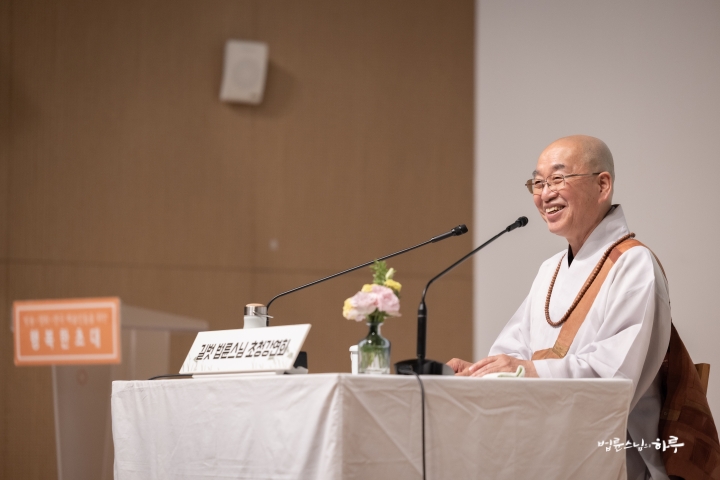
If we take interest and share just a little of what we have, we can give great hope to people in real difficulty. Above all, we can open up a path of life where their survival is guaranteed. If you go and see it directly, anyone would want to help, but when living in a prosperous place, it’s easy to be busy just taking care of oneself. It was the same when I was helping North Korean refugees. I had heard rumors that people in North Korea were indescribably struggling, but since I couldn’t see it right in front of me, I just thought, ‘Well, they’ll manage somehow.’ However, when I surveyed the Amnok and Tumen Rivers and directly saw corpses floating down, and when I saw starving children with their ribs showing after crossing into China, my eyes were opened wide. After that, even though the Chinese government prevented it, the Korean government didn’t allow support, and North Korea severely criticized us for helping refugees, because I had directly seen people dying, nothing else mattered. So, with the mindset of ‘If I get caught, I get caught; if I’m criticized, I’m criticized,’ I was able to start the movement to help North Korean compatriots.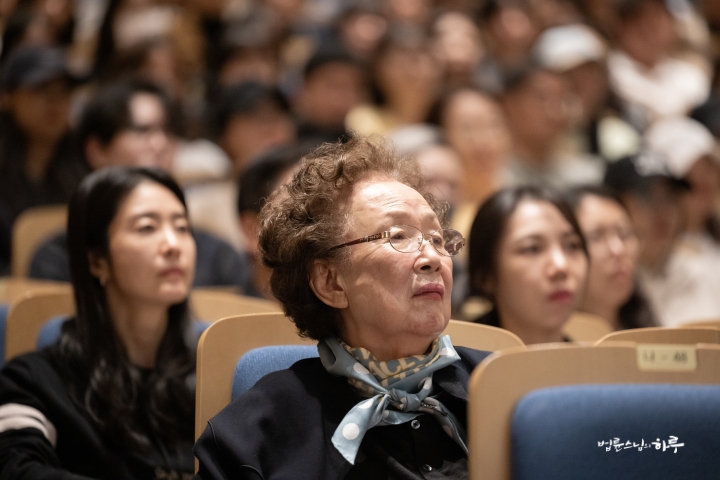
The Reason for Organizing the Gilbeot Lecture
I don’t think there are particularly good people or particularly evil people. However, anyone who directly experiences such difficult scenes will develop such a mindset. Unfortunately, because we don’t have the opportunity to directly experience such things, I think we might be complacent in our current lives. So, I want to encourage you all to travel to places that are more challenging than ours, rather than going to nice places. That’s because it gives you a chance to reflect on yourself. Going to the U.S. or Europe, the standard of living is similar to ours, and in fact, our country has become more convenient now, so there’s not much to be impressed by or get ideas from. But if you go to a country that’s living more difficultly than us, you realize how much you have. Whether it’s knowledge, wealth, or skills, we actually have a lot. If we use this for people living in difficulty, we can become very useful people. When you become a person who is necessary for the world, you feel pride in life and develop self-esteem.
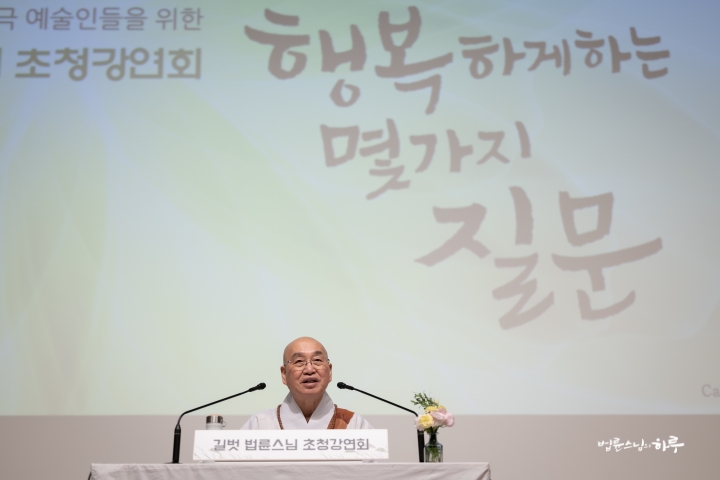
Especially for you all, because you have popular professions, others might think you have no worries, but in reality, you’re always living conscious of others’ gazes, so your minds seem to be more troubled. You’re more tense and anxious. If you only look within the broadcasting and film industry, your situation might seem difficult, but if you look from others’ perspectives or view your position from the outside, you’ll realize it’s not a big deal. By doing so, you can pursue what you want in a more comfortable state. This lecture was organized with this intention.”
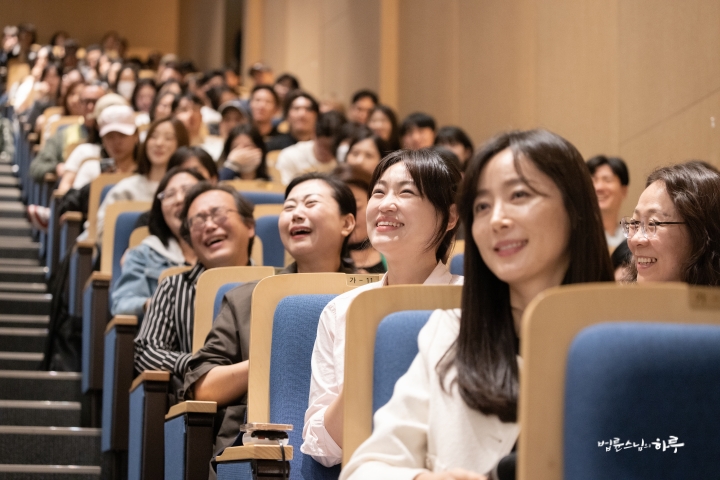
Then, nine people raised their hands and had conversations with Sunim. Those who had pre-registered questions asked first, and then spontaneous questions were taken from the audience. One of them was an actor who wanted to continue his acting career but felt financially pressured as he was about to get married, and sought Sunim’s advice.
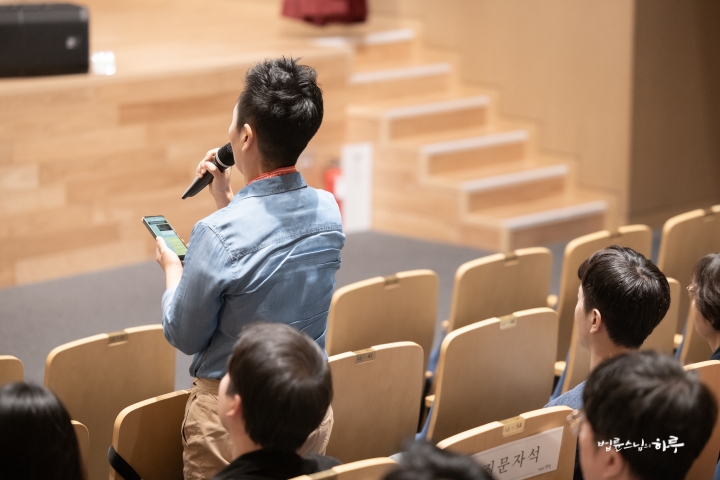
What Should I Do When I Want to Pursue Acting but Worry About Making a Living?
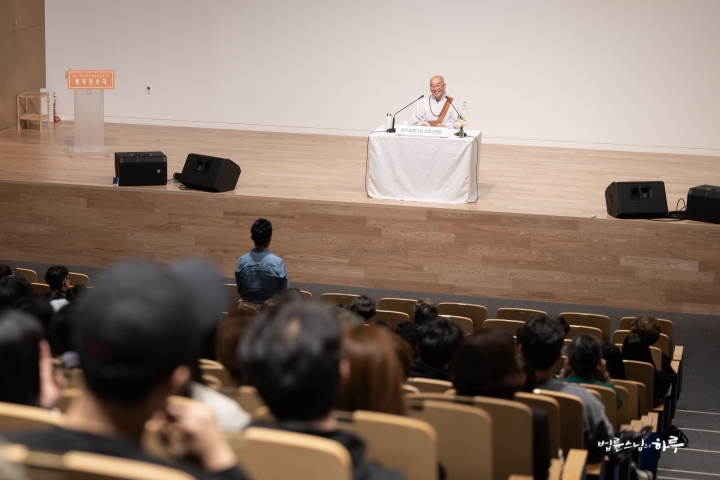
It’s best if you can make money doing what you love and solve your livelihood with it. But there are cases where you can’t make a living doing what you love. For example, if you love singing and can make money and live by singing, that’s the best. But if you can’t make a living by singing, you need to have a separate job to make ends meet, while singing should be a hobby. In other words, you should sing as an amateur. Similarly, it’s best if you can make a living by acting, but if you can’t, you need to have a separate job that can make money. Can’t you join an amateur theater group where office workers gather and practice acting as a hobby? You do the acting you love as a hobby, not as a profession. It’s best if what you love and what makes money coincide, but if that’s not possible, you need to have a separate job like this.
However, you’re still living alone, so you can just do what you like and only need to make enough to get by, but you’re worried because you need to be financially stable if you get married. In my view, that’s greed. For instance, if you’ve decided that you’ll live as an actor earning just the minimum living expenses, and if that’s not enough, you’ll do manual labor at construction sites but still continue acting, then the person who’s going to be your spouse should understand that too. If the person who’s going to be your spouse says, ‘You do the housework while acting, and I’ll work and we’ll live on that income. If you become a famous actor, that’s great, but even if you don’t, we can live happily,’ then it’s okay to get married. But if the person who’s going to be your spouse thinks, ‘We need a house to get married, and we need to earn money when we have children, but we can’t get married because we don’t have money,’ then you shouldn’t get married.
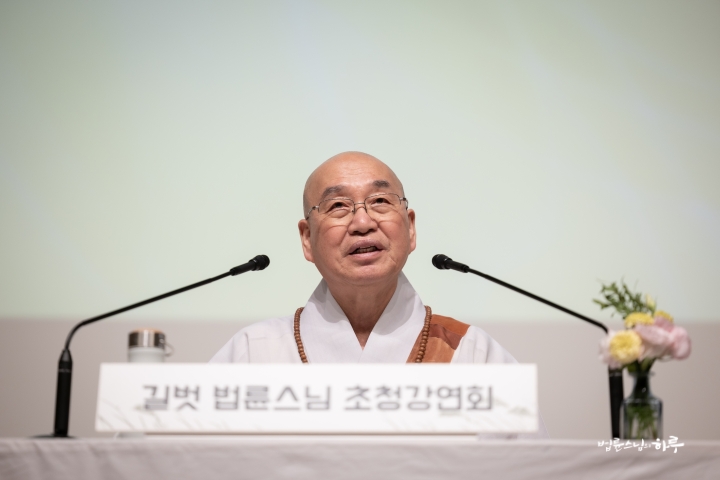
You need to make a choice. Either agree with your partner to act while earning minimal money and do manual labor to make a living, or if you can’t agree with your partner, work a regular job and act as a hobby, or if you must act, give up on marriage. Of course, it would be best if you could both act and earn money, but in your current state, isn’t it difficult to achieve that quickly? Even if you keep postponing marriage until you can earn enough money through acting, because the theater and film industry is on a downward trend, the probability of being able to be confident in front of your wife after marriage is very low.
Therefore, you two need to discuss and decide: either ‘I’ll act and earn just pocket money, but in return, I’ll do housework and take care of the children. You work a regular job,’ or you can act as a hobby on weekends and find a job to earn money. If not, you can just remain friends with the person you’re dating now and remove marriage from your goals. You have to choose one of these options.
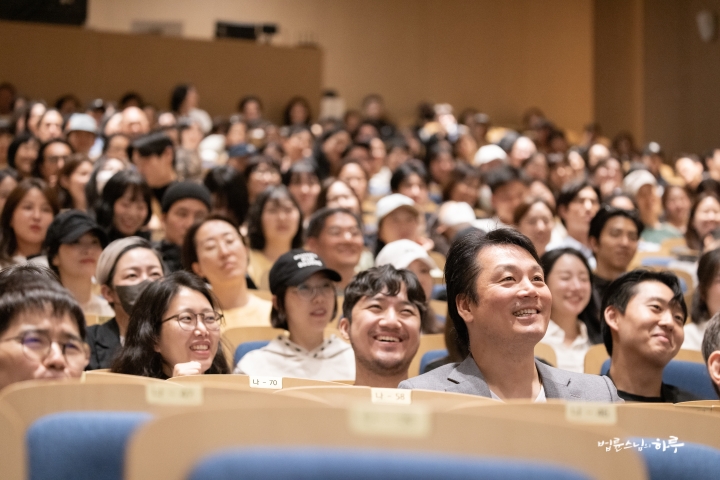
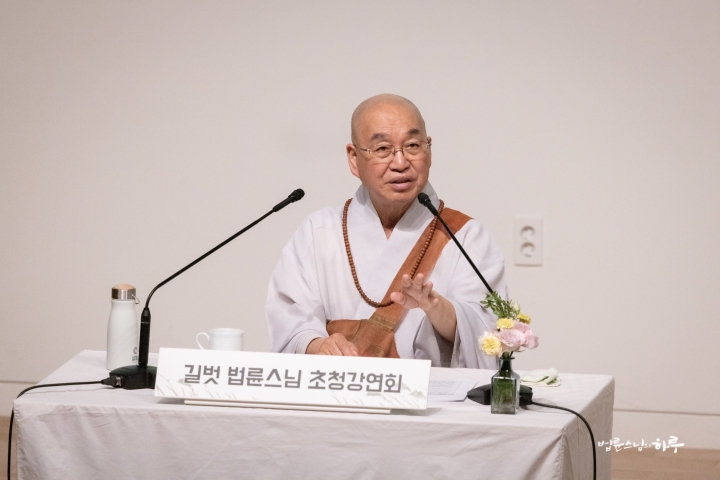
One might ask why wanting to get married is considered greed. My point is not that marriage itself is greed, but that it’s greedy to try to have the same kind of married life as others when you’re not in a position to do so. If you try to live that kind of married life, you may easily become a pitiful person who has to beg God, Buddha, blame your ancestors, or blame your past life.
Even if you’ve dated your girlfriend for 10 years, marriage can’t be achieved just by liking each other. Marriage is a reality, so you need to have serious conversations and may have to marry someone else, even if it’s regrettable. Not everyone who likes each other can get married. That’s a misconception. Rather, if you really want to get married, you should find someone who can support your acting career or someone who can understand your situation. The fact that you’ve been dating for 10 years without getting married suggests that you’ve been postponing marriage with the idea of saving some money first. In that case, the chances of the marriage happening are low.
If you say you’ll just rent a small room and live together with a few bowls and spoons, making do with what you have, then the marriage might happen. But if you insist on having everything like others do, even if you wait another 10 years, marriage will still be difficult.
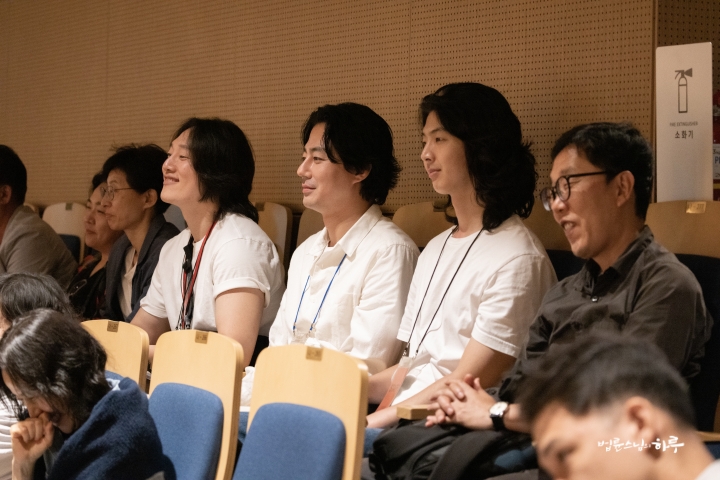
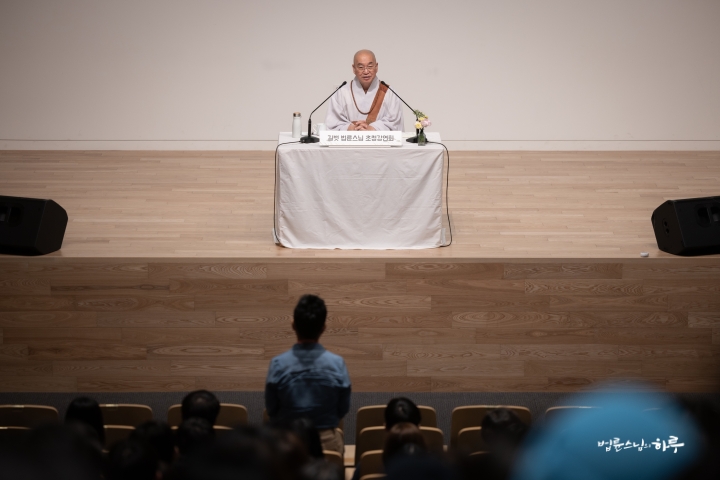
“My girlfriend is here with me. We’ll talk it over together. Thank you.”
“True friends can remain friends even after parting ways. You can only call someone a friend if you can understand and care for each other.”
“Thank you. I understand now.”
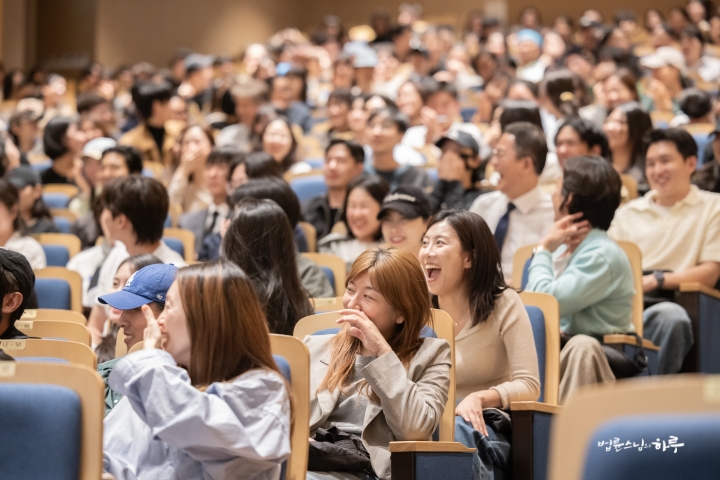
The questioner expressed gratitude, saying that the practical advice, rather than vague hope, was very helpful.
The questions continued. People working in various fields such as independent film directors, advertising company team leaders, actors, drama writers, and musicians shared their diverse concerns. Over the two-hour Q&A session, the participants’ hearts gradually became brighter and lighter.
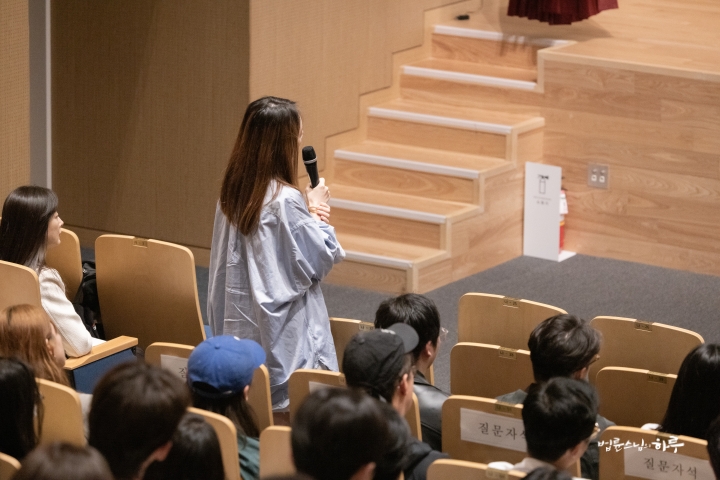
A young man who quit his job to pursue a career in music expressed his worries about whether he could do well. Sunim’s firm words made the young man snap to attention, and the audience gave a big round of applause.
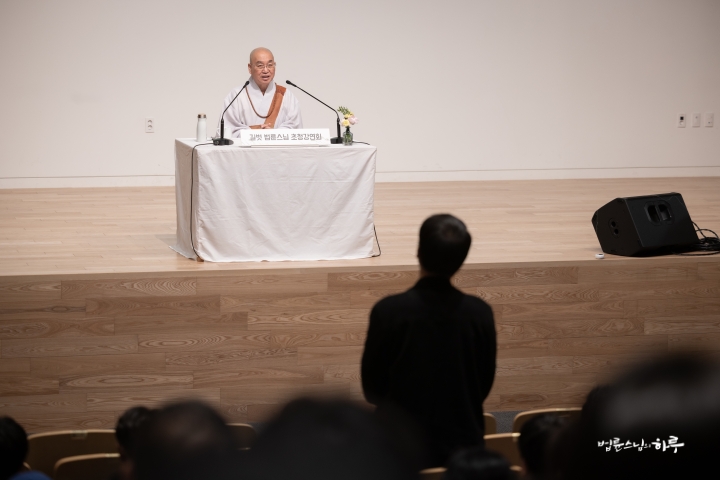
“Imagine you want to hold a red-hot ball of fire, so you grab it with your hand. It’s so hot that you ask me, ‘Sunim, it’s so, so hot. How can I let go of it?’ That’s what you look like right now. How to let go? Just say ‘Ouch, hot!’ and put it down. Is it because you don’t know how to let go? The reason you ask ‘How do I put it down?’ is because you don’t want to let go. You still want to hold onto it even though it’s hot. If you want to hold it despite the heat, then let your hand burn. If you don’t want your hand to burn, then let go. This is not a matter of method. In Buddhism, this is called ‘banghachak’. Just let go.
Why People Can’t Let Go of a Hot Ball of Fire
Many people ask how they can wake up early in the morning. How to wake up? When the alarm goes off, just get up swiftly. Asking ‘How do I get up?’ means you don’t want to get up. First, if you don’t want to get up, just sleep. Second, if you need to get up, just get up. Once you get up, the worry about ‘Should I get up?’ disappears. Saying ‘I should get up!’ doesn’t mean you’re going to get up; it means you don’t want to get up. Saying ‘I should get up!’ a hundred times won’t change the fact that you’re still lying down. Why? Because you don’t want to get up. If you just jump up, you don’t need to make the resolution ‘I should get up!’ All these worries happen before you actually get up. But most of us lie there saying ‘I should get up!’ We stand still saying ‘I should go!’ We don’t give but say ‘I should give!’ These thoughts are all just worries. Don’t say ‘I should go!’, just go. Don’t say ‘I should give!’, just give. Don’t say ‘I should get up!’, just get up. Don’t ask ‘How do I quit smoking?’, just quit. If you like being here, just stay. If you prefer to go, then go. It’s not a matter of method; the problem is that you don’t want to do it.
If you want to sing, just sing to your heart’s content. If after hearing your song, people say, ‘You sing well. Come to our house and sing for us,’ and you get many such requests, then you become a singer. If you write freely as you wish, and others read it and say, ‘Wow! This is great writing. Let’s publish it,’ then you should publish. But if you’re struggling and forcing yourself to write, who’s going to read such forced writing in this busy world?
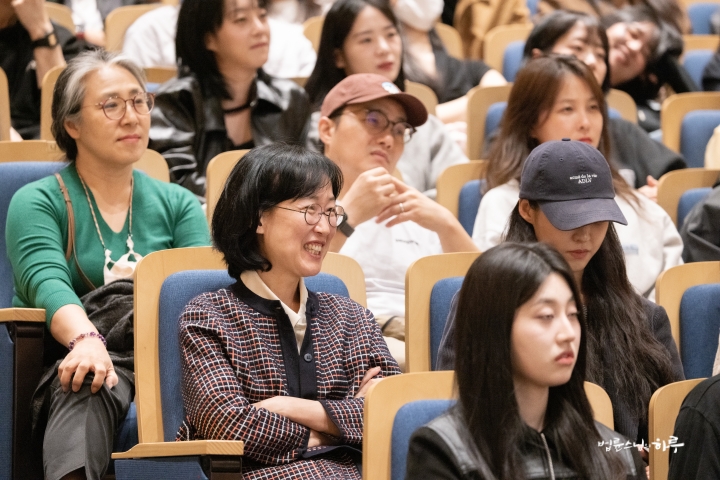
Don’t Just Say ‘I Should Do It!’, Just Do It
Sometimes even when you write something you really like, others might not like it. So who would like something you wrote while struggling and forcing yourself? If you don’t even like listening to your own song, who else would? But it seems like you’re hoping that when you compose and sing a song, others will be immediately moved and you’ll instantly become popular. Isn’t that a bit of a far-fetched idea? Why would other people want to listen to your song? You’re having a lot of worries because of such unrealistic thoughts.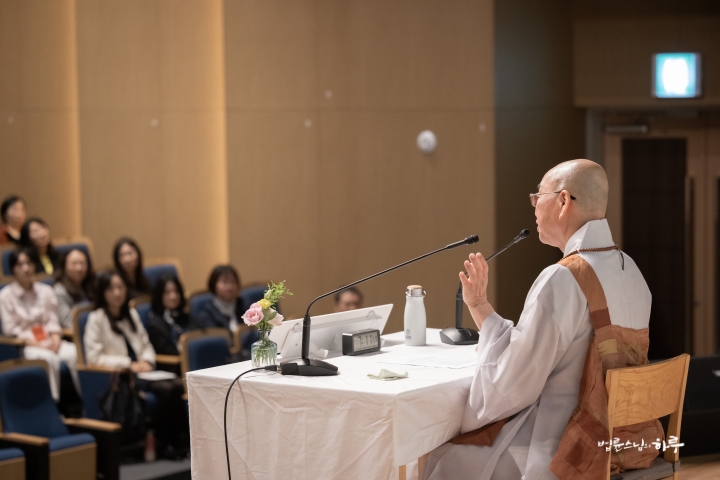
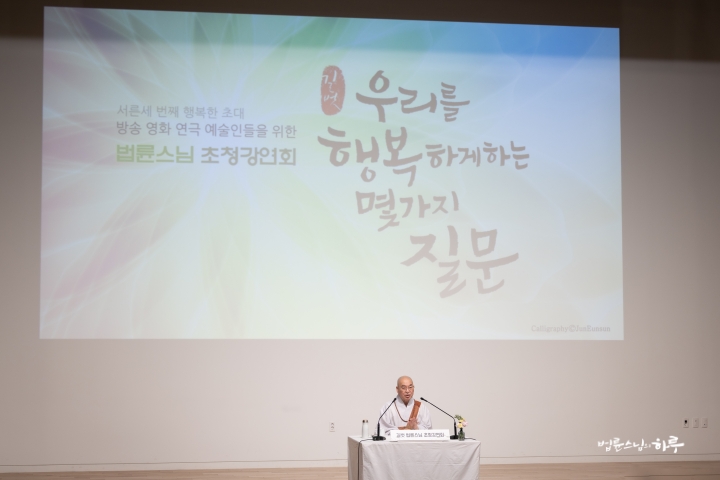
I want to tell you all to live freely. It would be nice if the public responds well, but if they don’t, what can you do? Don’t focus too much on success. How can a young person expect to become famous without even trying? I didn’t become widely known to people until I was over sixty. Don’t be too afraid of not succeeding. Just sing, and if you can make a living from it, great. If you can’t make a living from it, do manual labor while singing. There’s no surefire path. Some churches or temples might teach that there is a surefire path, but try praying there once. I don’t think there’s a surefire path.
The last young man to raise his hand said he had something he really wanted to say to Sunim and spoke in a loud voice.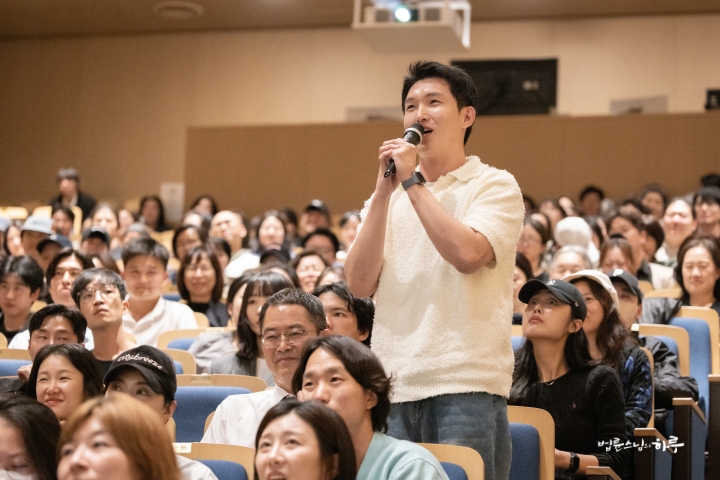
“I always watch the Dharma Q&A on YouTube, and I’ve always wanted to say something to Sunim if I ever got the chance to be here. I’m very nervous, but I’m gathering my courage because I think I’ll regret it if I don’t say it after the lecture. It might be a bit rude, but I’ll say it. Venerable Pomnyun Sunim, I’m always grateful and I love you. Please stay healthy!”
The lecture ended with a big round of applause. Through a draw, some people received books with Sunim’s personal signature as gifts. Each time a name was called, everyone cheered as the person came forward to receive the gift.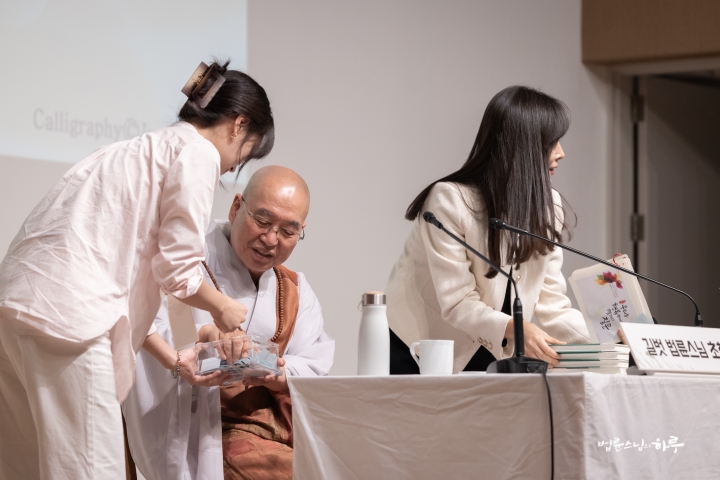
Sunim and writer Noh Hee-kyung stood in front of the stage and bowed with palms together to thank each participant as they left the lecture hall.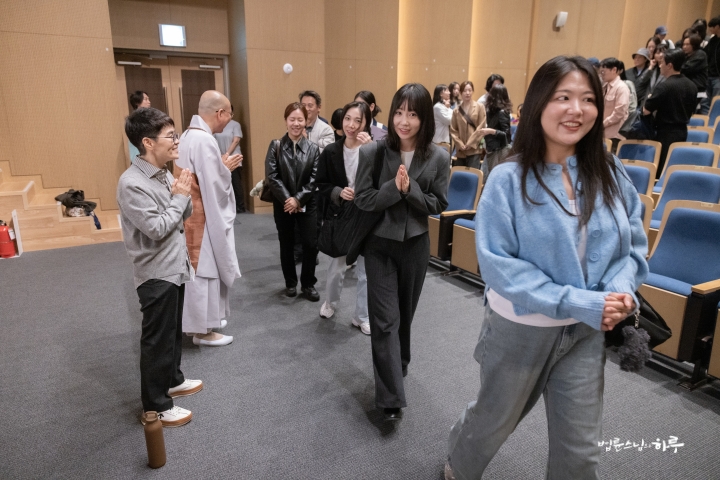
“Thank you for coming. Be happy!”
After all the participants had left, the volunteers who prepared for the lecture gathered to take a commemorative photo with Sunim.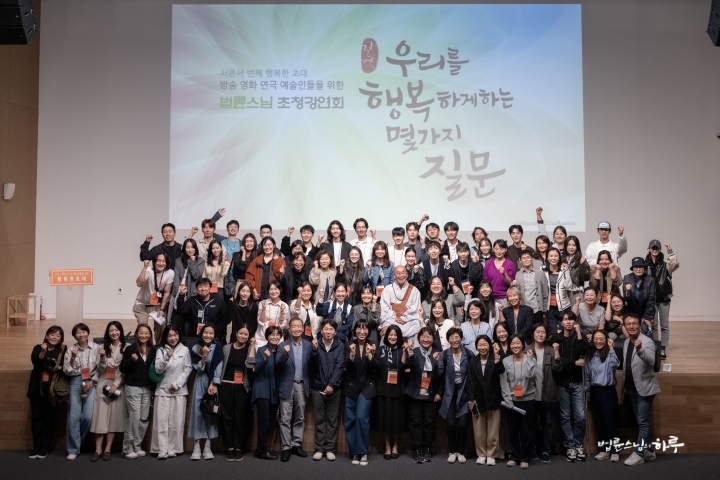
“Gilbeot, fighting!”
The 33rd Gilbeot Lecture concluded.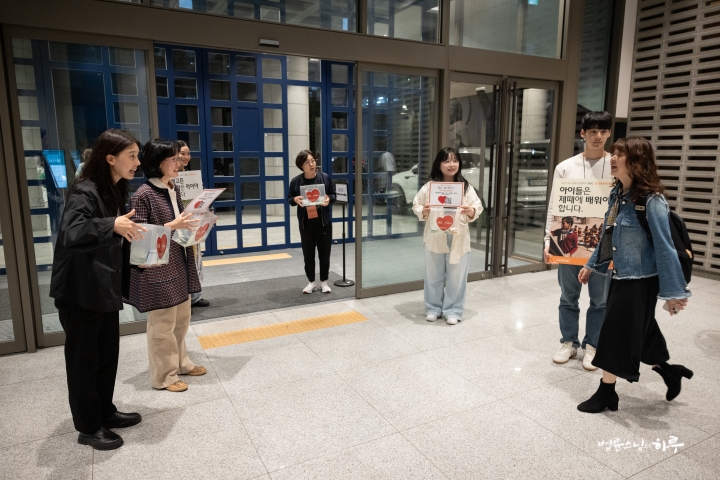
Tomorrow, Sunim will depart from Korea for Turkey to attend the completion ceremony of a school that can accommodate 4,000 students in the earthquake-affected area on the Turkey-Syria border.”




